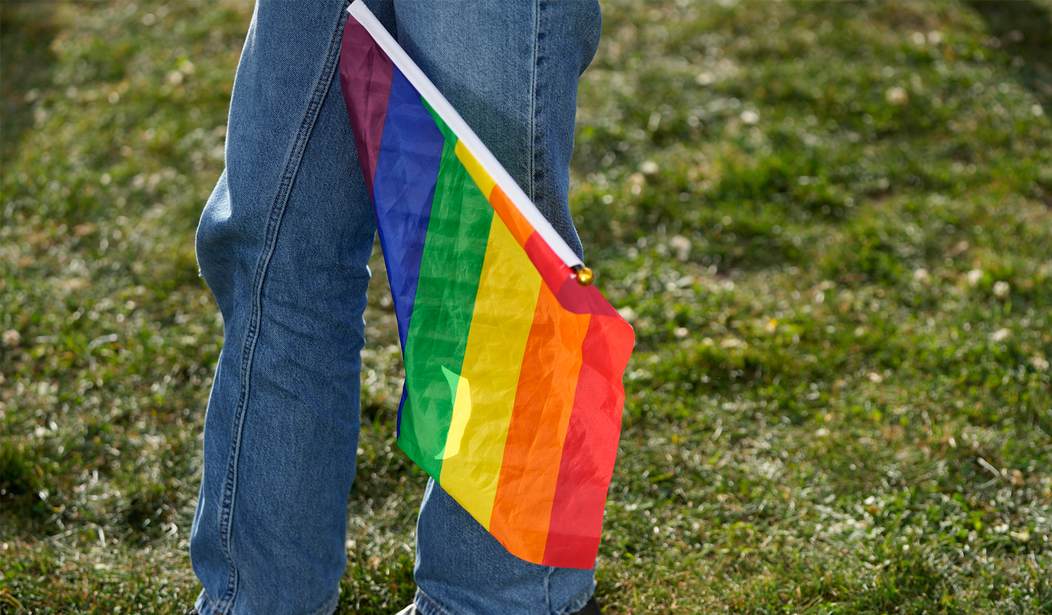While I've never been a fan of the whole "Greek" system at our universities - I went through college as an older, non-traditional student with Army service time and a wife and kid, and in the circle of friends I had in school we called them "Frat Rats." But with the benefit of age and a little perspective, I can see how the whole system could provide some benefits; networking, camaraderie, and not least of all, same-sex exclusivity. That last bit is important, and it's good, from time to time, for the guys to have some guy-exclusive spaces and the girls to have some girl-exclusive spaces.
Of course, not all of the "Greek" experiences are wholesome, but I think that we can overlook that.
Last month, however, my colleague Jeff Charles brought us a story from the University of Wyoming, where the Kappa Kappa Gamma sorority expelled two members for objecting to the national organization's ruling that a young man who "identified" as a woman be allowed to not only join the sorority but to live in the house and share all facilities - including showers and bathrooms.
U.S. District Court for Wyoming Judge Alan B. Johnson has dismissed a lawsuit brought by the two young women, Patsy Levang and Cheryl Tuck-Smith, stating that the sorority in effect can make its own membership rules. But Miss Levang and Miss Tuck-Smith appealed to the 10th Circuit Court of Appeals, and 450 of their sorority sisters have filed an argument in support.
More than 450 Kappa Kappa Gamma Sorority sisters filed an argument this week backing six of their sisters in their appeal against the sorority over its induction of a transgender member at the University of Wyoming chapter.
Nonprofit feminist organization Women’s Liberation Front filed its own argument in support of the women on Monday as well.
Both amicus briefs urge the 10th Circuit Court of Appeals to reverse a U.S. District Court for Wyoming ruling in which Judge Alan B. Johnson dismissed the women’s lawsuit and said the sorority can define the terms in its own governing documents.
While the governing documents of KKG specify that only women are to be inducted, group leaders dispatched a statement in recent years saying the term now includes people who identify as women.
The actions of the "group leaders" seem like a bit of a workaround to what are pretty clear guidelines: Only women are to be allowed in the sorority. But part of the argument the sorority sisters are making is that should the sorority want to do this, they have to actually change their by-laws.
The 450 sisters argued in their brief that this workaround was not enough: KKG should go through its official process to change its governing documents if it wishes to expand membership to males.
“(We) believe that KKG’s failure to abide by its own bylaws, coupled with the trial court’s backhanded dismissal of the complaint in this case, is a severe blow to women’s rights,” the sisters’ brief says, adding that the women have come together and funded the brief’s submission with their own individual donations.
Could this be the beginning of a backlash?
If so, the Kappa Kappa Gamma sorority isn't the first academic institution to be feeling the heat for "woke" policy decisions, and hopefully won't be the last.
Jeff's original story described the behavior of the sorority's "transgender" member in unsettling detail.
The complaint adds that (Dallin “Artemis”) Langford is “sexually interested in women” as evidenced by his Tinder profile “through which he seeks to meet women.” It is further alleged that Langford took photographs of the women while at a sorority slumber party, where he also is said to have made inappropriate comments.
“Smith repeatedly questioned the women about what vaginas look like, breast cup size, whether women were considering breast reductions and birth control,” the complaint alleges.
Young women, many of whom are still teenagers, shouldn't be subjected to this. The very value of these institutions is that they provide a same-sex (and I really hate using this term) safe space for these girls to relax and feel at home. The forced presence of the "transgender" Langford violated that safe space.
If Kappa Kappa Gamma wants to change their bylaws to allow this, well, one supposes that as a private organization, they have the right to do so. But in a world where more and more young women (and their parents, who in many cases are picking up the tab) are objecting to this sort of thing, we'll likely see this kind of push-back continue.
The institutions in question can either pay attention to their members or face the consequences; if they want to know how that works, I suggest they talk to a member of the Bud Light marketing team.















